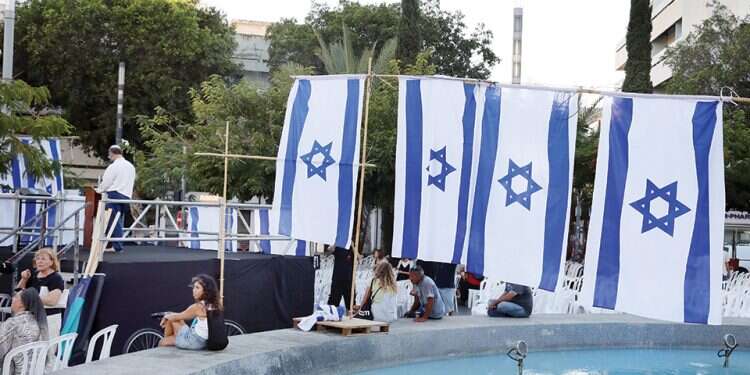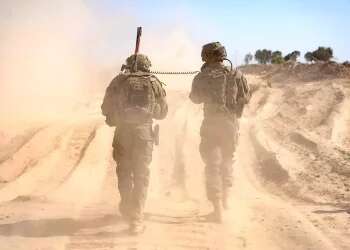1.
"Cry with full throat, without restraint; Raise your voice like a ram's horn! Declare to My people their transgression, To the House of Jacob their sin." So we were taught by the Prophet Isaiah in the eighth century BCE and it is this prophecy that we read on Yom Kippur.
Follow Israel Hayom on Facebook, Twitter, and Instagram
For most of my life, I have tried not to tarry on the "hollow and empty crops," in the words of the late Hebrew poet and translator Aharon Amir. I have tried to focus on the good, on achievement and challenges, on the spirit of greatness, and on the enormous historical changes that we have been given the right to be a part of. Many generations would have wished to live in these times. Our sages taught that the difference between this world and the days of the Messiah is that "oppression by other kingdoms will be abolished" – namely that Israel is independent. Therefore, I have always believed that it is more important to strengthen healthy foundations and show there is hope for the future than it is to be outspoken and to prove others wrong. We are in a lengthy process of building our independence and sovereignty, a process during which we have experienced ups and downs, but the dominant trendline is one of progress and ascent.
2.
But the difficult events that took place during Yom Kippur prayers on the streets of Tel Aviv, the first Hebrew city, are a watershed, and cannot simply be ignored. When I took up my post as Israel's ambassador to Italy, we responded aggressively to the antisemitic incidents that were brought to my attention. But I noticed that there were cases that, even if the Italian Jewish community was horrified, did not seem to me antisemitic. I realized that living in an independent country had numbed our historical sensors and we failed to discern what Jews around the world were experiencing as an attack on their identity. I remember a case in which a public figure linked Jews to money; the case led to a great scandal, condemnations, and apologies. But then I remembered not long ago, a Jew who got up and threw banknotes at ultra-Orthodox Jews in Bnei Brak. He took pride in his actions and asked his friend to take his picture. Can you imagine a similar humiliating act against Jews anywhere else in the world?
Jews pray on the streets of Tel Aviv on our people's holiest day and repeat the ancient words that our forefathers uttered in the dungeons of the Inquisition and during the terrible Nazi Aktion (mass murder operations) in the death camps – the chilling opening to the Yom Kippur prayers: "In the heavenly court and in the earthly court; with the consent of the omnipresent and with the consent of the congregation, we are permitted to pray together with the transgressors." Immediately afterward, we commence the Kol Nidrei prayer.
As a child, from my seat, I would see my father and the elders of the synagogue hunched over on the Bimah and in an ancient voice that came from their hearts they would bring God (the Omnipresent Blessed Be He) into their court to permit all of us to pray with them without weighing all our indiscretions. Every Yom Kippur, I would tremble at the weight of the occasion.
3.
During the period of the Spanish Inquisition, Jews who were forced to convert to Christianity used the Kol Nidrei prayer to annul their vows to the Church. Below is the testimony in a trial of a converted Jew from Aragon in the autumn of 1469: "In the season of grapes and figs they used to ... go out into the orchards... they would go back and forth in the orchards and all day they didn't work ... You could see on their faces that they were almost fainting or dying. They didn't eat all day... some of them went barefoot... They said Jewish prayers..." Another convert testified about her aunt Violante Alvarez: "When it was evening, she called her and took her out next to a field that was next to the house and said: 'Take care to fast today so that our Lord will give you life.'... And as the two of them stood there, facing east she unwrapped his head covering and taught him prayers ... and the witness repeated the same words and when it was done, she said, 'Aunt, whom are we praying to?' and she said to her, 'Look, we worship a single God, the God of Israel, your people.'"
4.
Now, some 500 years later, in our independent state, Jews, in plain sight, rampage, and riot, pull off prayer shawls, throw prayer books to the ground, call their fellow Jews by terrible names, and shout "shame" during the Kol Nidrei prayer and again during the Neilah prayer that brings Yom Kippur to an end. Some people attending prayers were beaten up. In one clip, one innocent little girl asks: "Daddy, why do they say shame to the shofar?" What would we call a similar incident elsewhere in the world? Overseas, were we to see something that is just a fraction of this disgrace, we would condemn it as an antisemitic incident. The attempts to understand and place the event in a particular context are an added disgrace because they justify the aggressor.
The mayor of Tel Aviv refused to speak out against the incident "because there was no violence," and, he said, "there was a provocation." Yair Lapid put it this way: "Messianic and racist groups who have come here from other places are trying to impose their version of Judaism on us." But there was no condemnation of the shameful events. Rest assured, Yair, no one imposed anything. People turned up of their own free will. Adults like you chose "their version of Judaism." Benny Gantz also failed to rise to the occasion and released an accusatory statement against Prime Minister Benjamin Netanyahu. Right. The reason for the feeble condemnations may be found in the words of Shikma Bressler, one of the leaders of the protest movement: "The Messianic Kahanist extremists decided to start a religious war against the people of Israel on Yom Kippur... For all those who are confused, this is not Judaism." How low, woe the disgrace. The term "confused" was a warning to politicians.
5.
When the municipality issued a response to the court, there was no discussion of outdoor prayer on the city streets. Moreover, the municipality wrote explicitly that "in any event, any party so interested may hold prayers in the public sphere, without any authorization from the municipality." The ruling did not prohibit gender-separated prayer as is the age-old Jewish custom, but only that there "be no gender-separation via physical means." In other words, a physical partition that blocks the ability to pass through the public sphere. In past years, a minority (a few hundred) prayed separately, while the majority (thousands) prayed, men and women, together.
This time, the court and the municipality's decision were upheld and no partition was placed at the site. This was confirmed by police. The Israeli flags that fluttered in the wind were just a symbolic separation of the Dizengoff Square for those who wished to pray separately. The flags didn't block anything or anyone. In the Babylonian Talmud (Tractate Sukkah 24b) Rav Aḥa bar Ya'akov said "Any partition that is not able to stand in a typical wind...is not a partition." Rashi explained, "A typical wind - that the wind blows to and fro." In other words, if a partition flutters in the wind, that is enough to disqualify it from being a wall of a sukkah because it does not separate the outside from the inside.
The sukkah calls on us to go out of our protected home to an impermanent home just as winter begins to teach us that not all that seems stable is in fact permanent. Everything is ephemeral and what holds the walls of homes is the same faith that holds the walls of a fragile sukkah. The Zohar describes the sukkah as the "shadow of faith." "A song of ascents. Of Solomon, Unless the Lord builds the house, its builders labor in vain on it; unless the Lord watches over the city, the watchman keeps vigil in vain." This ancient assertion begins with "Song of Ascents", and indeed we must transcend reality to see what is permanent and what is ephemeral.
The rioters were not interested in these subtleties; they wanted to show the worshippers that they would not be able to bring prayer to the streets. By doing so, they desecrated the holy day, blasphemed God, and caused disappointment and sorrow to many who understand that the protest is long since not about legal reform but has reached the very root: the identity of the state. Fortunately, the majority despises the attempt to create a conflict over our ancient tradition. It is by virtue of that tradition that we live, as individuals and as a people.
Subscribe to Israel Hayom's daily newsletter and never miss our top stories!




